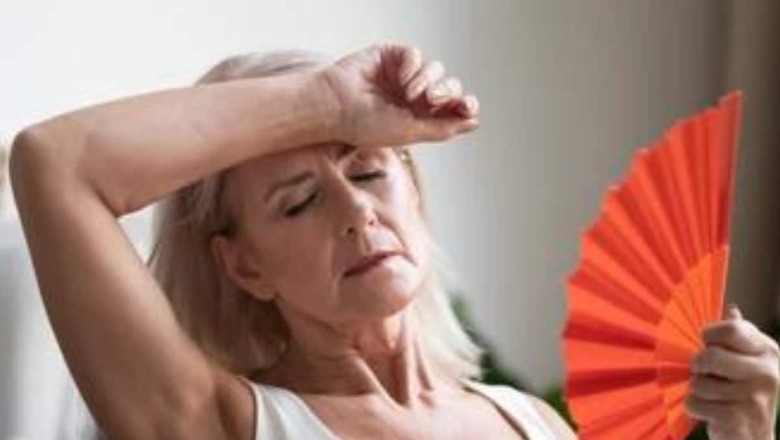
109
views
views
Menopause is a unique journey for each woman but the common factor is with proper self-care, it can be navigated with grace and resilience
Menopause signifies the end of a woman’s reproductive years and while menopause typically occurs in the late 40s to early 50s, perimenopause, the transitional phase leading up to menopause, can begin several years earlier. Recognizing the early signs of menopause empowers women to understand and embrace this transformative journey. While most signs of it are common there are some that are not.
Here are some usual signs that one can look out for-
- Inconsistent/Irregular Menstrual Cycles:One of the primary indicators of approaching menopause is severe irregularity in menstrual cycles. Women may experience shorter or longer cycles than they normally do, changes in flow intensity, or missed periods altogether. These irregularities may occur months or years before menopause, signalling a gradual decline in reproductive hormone levels.
- Hot Flashes and Night Sweats:Hot flashes, characterized by sudden waves of heat spreading throughout the body, often accompanied by sweating and flushing, are a common early indicator of menopause. Night sweats, similar to hot flashes but occurring during sleep, can disrupt restful sleep patterns and put you in great discomfort. These fluctuations in body temperature may occur sporadically or become more frequent over time.
- Vaginal Dryness and Discomfort:As hormone levels fluctuate, the decrease in estrogen production can lead to vaginal dryness and discomfort during intercourse. The thinning of vaginal tissues may cause severe itching, burning sensations, and heightened susceptibility to infections. Using lubricants and seeking medical advice can help alleviate these symptoms.
- Mood Swings and Emotional Changes:Hormonal shifts during menopause can impact emotional well-being, leading to mood swings, irritability, and increased susceptibility to anxiety or depression. Emotional changes may arise due to the complex interplay of hormonal, physiological, and psychosocial factors. Seeking support from loved ones and healthcare professionals can provide valuable emotional assistance and you should not shy away from seeking for help.
- Sleep Disturbances:Menopause can bring about sleep disturbances, including difficulty falling asleep, staying asleep, or experiencing unrefreshing sleep. Factors such as night sweats, hormonal imbalances, and psychological stressors can contribute to these disruptions and might completely drain you out. Establishing a consistent sleep routine, maintaining a comfortable sleep environment, and practising relaxation techniques can promote better sleep quality but it might take some time to get back to a normal set routine.
- Shifts And Changes in Sexual Desire:Fluctuations in hormone levels can affect sexual desire and libido. Some women may experience a decrease in interest or a shift in sexual preferences during menopause. Open communication with partners and healthcare providers can help address concerns and explore potential solutions, such as counselling or hormone therapies.
- Changes in Hair and Skin:
- Menopause can bring about changes in hair texture, such as thinning, dryness, or increased brittleness. The skin may also become drier, and the appearance of fine lines and wrinkles may be more pronounced. Adapting skincare routines and seeking professional advice can help maintain healthy hair and skin during this phase.
















Comments
0 comment